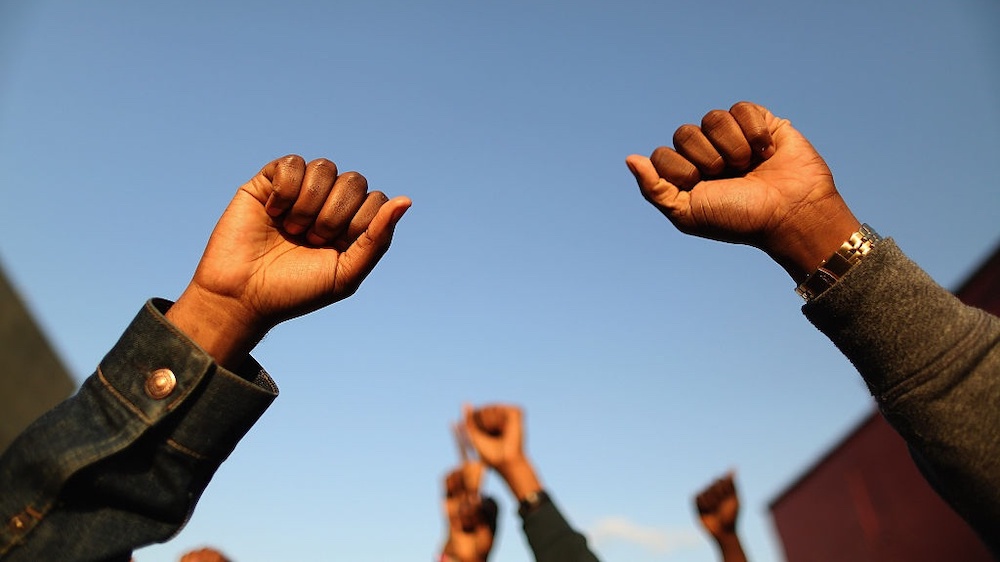If you’re interested in sharing your opinion on any cultural, political or personal topic, create an account here and check out our how-to post to learn more.
____
Read this slow and out loud.
Power concedes nothing. Any concession granted by the state is to protect the State itself. Anything and everything given to the people by the government is for the preservation of the Union. Stimulus checks, opportunity zones, affirmative action, paycheck protection, unemployment assistance, housing assistance, Medicaid, Medicare, food stamps — all of this s**t is just to shut us up about freedom. The United States, as an economy that is defined by a large disadvantaged labor force, will not ever grant equal opportunity to the groups it is dependent upon for its survival.
Even at the brink of self-destruction and jeopardized by civil war, Abraham Lincoln found it difficult to grant freedom to people that were willing to shed blood on the country’s behalf. In fact, he already possessed a tool to free enslaved people before signing the Emancipation Proclamation but refused to use it. The Confiscation Acts of 1861 and 1862, were passed almost a year earlier and granted the federal government authority to seize all property, including enslaved persons, used in support of the Confederate rebellion. Unfortunately, this law was neither enforced by President Abraham Lincoln nor recognized by Union soldiers.
Only after Lincoln was publicly criticized and the war effort continued to deteriorate was the idea of liberating the enslaved crystallized. Specifically, when Horace Greeley, used his platform as editor of the New York Tribune, to remind the President of his sworn duty to execute the laws of the land, President Lincoln responded by saying, “What I do about slavery, and the colored race, I do because I believe it helps to save the Union; and what I forbear, I forbear because I do not believe it would help save the Union.”
So, you see, freedoms granted to the enslaved class were granted only to the extent to which it was beneficial to the country.
Predictably, when these people’s freedom was no longer useful to the preservation of the Union, the same leaders who advocated for their liberation turned a blind eye towards their subjugation. After the Civil War, the need to control labor remained vital. Eric Foner of Columbia University, references the writings of prominent South Carolina planter, William H. Trescot, when in 1865 he asserted, “that this question of control of labor underlies every other question of state interest.” The premature end of the Reconstruction era through the Compromise of 1877 and the subsequent implementation of Black Codes throughout the South substantiates this notion. Identical trends are found throughout American history. This example was used to debunk the benevolent narrative that surrounds it teaching.
Ironically, this presumptuous obsession with the control of labor and the people who perform it has woven its way into our ideas about freedom. Contemporary definitions of freedom are shaped by the centrality of work-ethic; coerced or voluntary, managerial or secretarial, in warehouses or in fields, corporate or manual, labor makes capitalism go’ round. Control is the means by which this end is achieved and the exact opposite of true freedom or any form of self-actualization.
So, as masses of people pour into the streets, demanding systems of equity, concessions will be made. Police department budgets will be cut, police officers will be charged, vigilantes will be arrested, murals will be painted and diversity trainings will be made mandatory — but be vigilant. When these concessions fail to fulfill the aspirations of freedom, they will be quelled with violence. Frantz Fanon writes it this way:
“On the contrary we must persuade ourselves that colonialism is incapable of procuring for colonized peoples the material conditions likely to make them forget their quest for dignity. Once colonialism has understood where its social reform tactics would lead it, back come to the reflexes of adding police reinforcements, dispatching troops, and establishing a regime of terror better suited to its interests and its psychology.”
Too many of us are already too familiar with the latter. There exists not one law or initiative that is capable of granting both freedom and the preservation of a system that continues to benefit from our oppression. As Malcolm X so eloquently said in 1964 during his renowned “Ballot or the Bullet” speech, “Why, if birth made you American [free], you wouldn't need any legislation; you wouldn't need any amendments to the Constitution; you wouldn't be faced with civil-rights filibustering in Washington, D.C., right now.”
So, can we please stop attending these Prosperity Initiative meetings at the White House. Contrary to what Robert Unanue thinks, you actually can say, “No, I'm sorry, I'm busy, no thank you.” This new wave of activism, advocacy and action requires diligence. Power never gives away anything for nothing. Considering that the crony capitalistic system in which we live under is made possible through white supremacy, we will achieve nothing if we leave one and forget the other.
